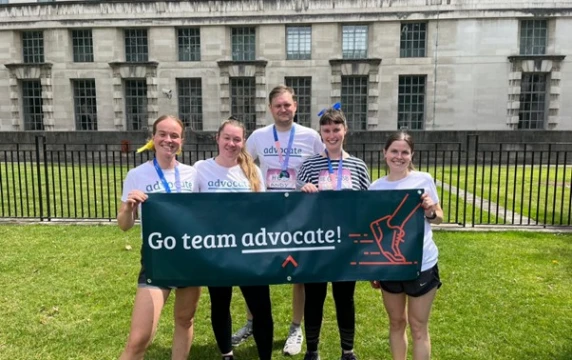At what stage in your career did you take on your first pro bono case?
I took my first piece of pro bono work for Advocate during my second six in pupillage. Before that I had done quite a bit of pro bono work at University and through the Free Representation Unit, also a fantastic charity and ally at the Bar.
Why did you decide to undertake pro bono work?
Now a junior tenant in private practice, I still enjoy undertaking pro bono work and gain a great deal of satisfaction from the work I do for Advocate. I like levelling the playing field by providing representation to parties who would otherwise go unrepresented and for whom the process might otherwise be too stressful or the results less pleasing. I find that pro bono cases also often provide the opportunity to grapple with important points of law which might not otherwise be litigated on account of the high costs of litigation versus the quantum in issue.
What was the most memorable case you worked on, and what did you do?
Through Advocate, I was lucky enough to act as a junior in a really interesting whistleblowing case in the Court of Appeal being led by Jeremy Lewis, a leading light in this field of work. It was great to have the opportunity to work with and learn from a senior member of the profession on skeleton arguments, cost protection applications and the tactics of the litigation. It was a fantastic feeling when the judgment was handed down in our favour, with a pro bono costs order to boot, helping fund more pro bono work to increase access to justice.
What effect did pro bono work have on your career?
Pro bono cases have allowed me to gain experience in the appellate courts and tribunals in complex litigation at an early stage in my career. I’ve also benefited hugely from the experience of working with senior members of the bar and learning from them. Although the work has always been challenging, either in terms of complexity or timescale, I enjoy pushing myself and learning from others, and I think these experiences have helped me become a better barrister. I think it’s also led to clients having the confidence to instruct me in appeals in private practice.
What is the most rewarding thing about doing pro bono work?
In the Employment Tribunal context, it’s always enjoyable to see a client who may have been through a real nightmare feel vindicated by a positive result in the Tribunal. The reality is lots of litigants enter bad settlements or discontinue proceedings when unrepresented because it is just too stressful. In the appellate context, I suppose every barrister wants to play a part in shaping the law, however small.
What advice would you give to any barrister unsure about whether to start doing pro bono work?
Sign up to Advocate. The casework team are a cracking bunch, the work is interesting, and you can easily fit it around your practice when a gap appears unexpectedly in the diary. I’d also say that Advocate has introduced me to a great community of like-minded individuals outside of chambers and across all disciplines, with whom I can share both the highs and lows of life at the Bar.







